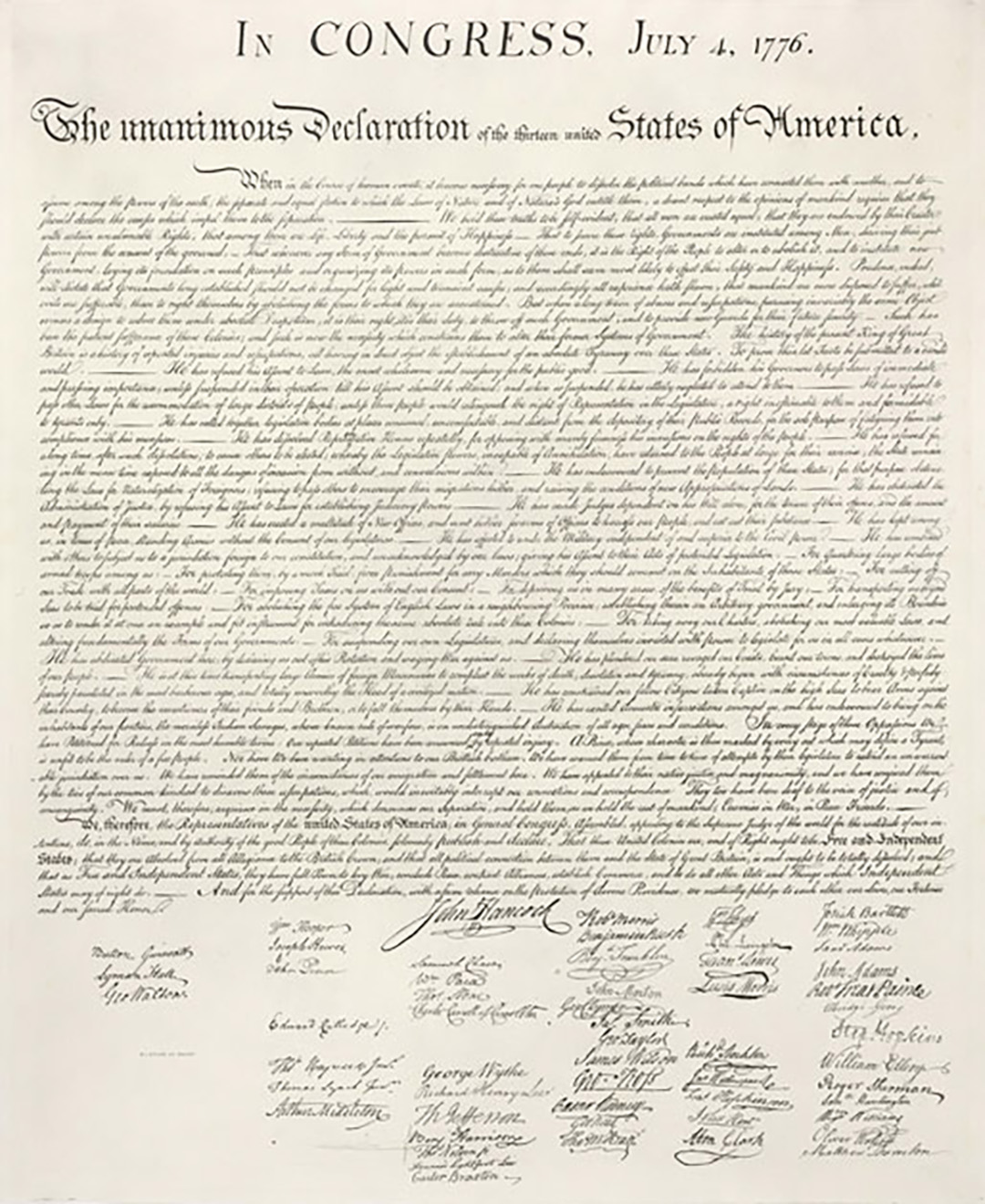Read Closer
The Declaration of Independence is not a legally binding document, but all those identifying themselves as Americans nevertheless continue to be honor bound by a mutual pledge to uphold the principles of equal human rights: —“Life, Liberty and the pursuit of Happiness.” To title caption Panel 6, Lawrence excerpted the final sentence of the Declaration of Independence.
Excerpt from Thomas Jefferson et al., The Declaration of Independence, 1776, Textual Records, Miscellaneous Papers of the Continental Congress, 1774-1789, National Archives, Washington, DC
We, therefore, the Representatives of the united States of America, in General Congress, Assembled, appealing to the Supreme Judge of the world for the rectitude of our intentions, do, in the Name, and by Authority of the good People of these Colonies, solemnly publish and declare, That these United Colonies are, and of Right ought to be Free and Independent States; that they are Absolved from all Allegiance to the British Crown, and that all political connections between them and the State of Great Britain, is and out to be totally dissolved and that as Free and Independent States, they have full Power to levy War, conclude Peace, contract Alliances, establish Commerce, and to do all other Acts and Things which Independent States may of right do. And for the support of this Declaration, with a firm reliance on the protection of divine Providence, we mutually pledge to each other our Lives, our Fortunes and our sacred Honor.
Thomas Jefferson et al., The Declaration of Independence, 1776, Textual Records, Miscellaneous Papers of the Continental Congress, 1774-1789, on parchment, from the National Archives, Washington, DC

